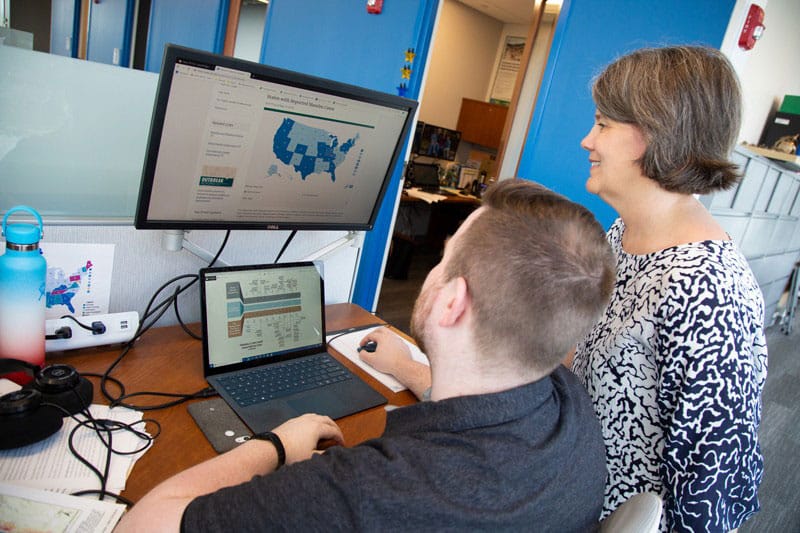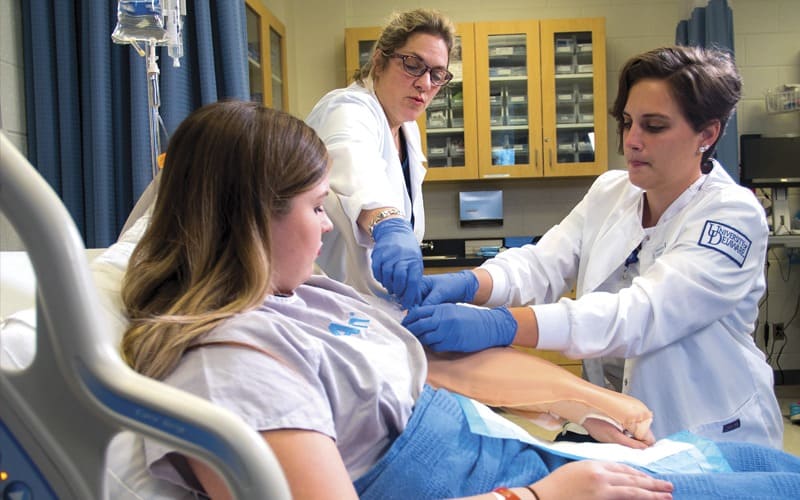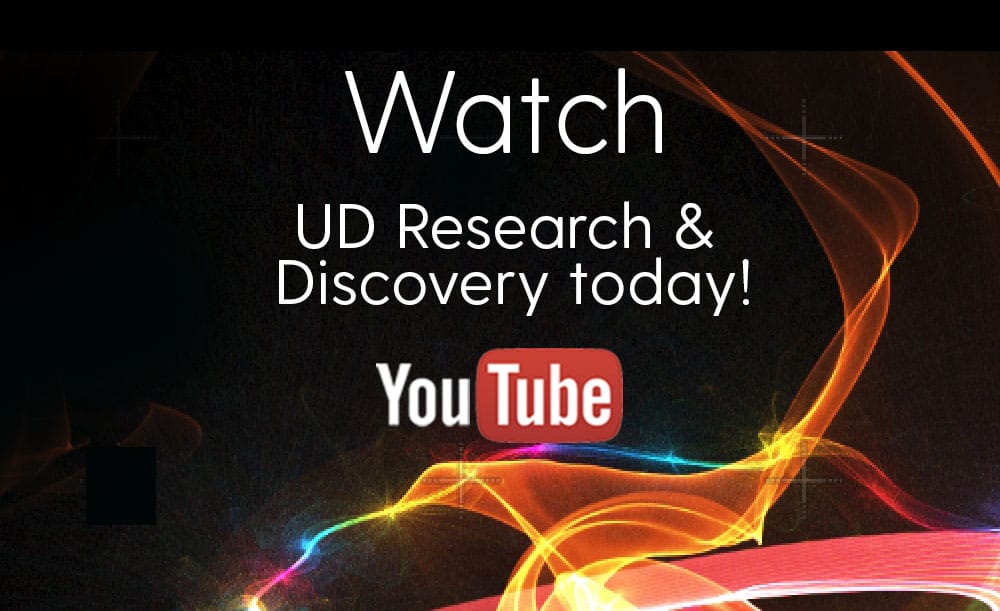RESEARCH
DISCOVERY
A Blog Devoted to UD Innovation, Excellence & Scholarship
COVID-19
Learning About a Pandemic While it Happens
This photograph was taken before the coronavirus pandemic necessitated social distancing and face masks. Students in Prof. Jen Horney’s Methods in Field Epidemiology class learned the steps of investigating and reporting on disease outbreaks. Colten Strickland (left), a doctoral student in the epidemiology program, said the class helped him to apply what he’s learned in the classroom while in the field.
“I don’t have to worry about the relevance of my research to the media, that’s for sure,” remarks Horney, who has been constantly sought after for her expertise by various news outlets, such as HuffPost and CNN, since the pandemic began.
As articles on the first known coronavirus cases were being published in the Lancet at the beginning of the year, Horney adjusted the lesson plans of her EPID 621: Methods in Field Epidemiology course to account for the new information. She figured it would be a worthwhile and relevant subject to discuss in her class, but even she didn’t realize at the time that the virus would soon become the central focus of most of the world.
For many in the general public, the last few months may be the first time that they are seriously thinking about the transmission of infectious disease as they go about the routine activities of their day-to-day lives. You may not have heard of the large outbreak of Legionnaires’ disease that occurred at a flower show in the Netherlands in 1999, where attendees who simply walked by whirlpool spas on display were infected by water droplets carrying the deadly bacteria. How about the outbreaks of Listeria found in ice cream in the U.S. in recent years? Or the recent outbreak of salmonella in Delaware and Pennsylvania at the end of 2019 that was linked to cut fruit?
For those who specialize in epidemiology and public health, outbreaks such as these that threaten public safety are constantly being monitored and responded to, while most of the public remains unaware that such events are even occurring. In Horney’s EPID 621 class, such real-world examples serve as valuable learning resources.
“What I find really engaging about teaching this class is that all of the assignments that we complete are based on actual outbreaks,” says Horney. “Nothing is made up. We study real-world examples, including local outbreaks and case counts progressing in real time during the semester.”
The difference with this past semester’s class was that the real-world outbreak being tracked happened to be a pandemic powerful enough to shut down entire industries and force millions of people to shelter in place at their homes. As the world was anxiously following the progression of COVID-19, the students in EPID 621 were tracking the disease as a part of their studies, discussing the latest information to come out each week when they met, first face-to-face, and then transitioning online, for class.
“I began taking Methods in Field Epidemiology back in early February. At the time, our class was discussing the inevitable COVID-19 outbreak in the U.S.” says Jamie Ahlers, a graduate student in the epidemiology program “It was incredible to see it all play out as we had discussed in class.”
The class teaches students the different steps of investigating and reporting on disease outbreaks, including identifying if an outbreak is occurring and if it is a novel outbreak, studying how outbreak investigations are conducted through methods such as contact tracing and analyzing public health data, and best practices for communicating about an outbreak, whether it is writing outbreak reports or working with the media to inform the public.
“My classmates and I felt so fortunate to be immersed in the curriculum of Methods in Field Epidemiology while the coronavirus outbreak unfolded,” said Emily Marshall, another student in the class. “We got an even more enriching experience by having class discussions that tied together epidemiological concepts with what we were experiencing in our world firsthand as COVID-19 made its way to Delaware and into our daily lives. Having the foundational knowledge from this class also helped me to digest some of the news and media about coronavirus in a more thoughtful, calm manner and even break it down in terms that my family and friends could understand.”
Through classes such as Methods in Field Epidemiology, the program provides students with a unique opportunity to gain practical skills in applied epidemiology that will allow them to make a meaningful impact in public health positions.






